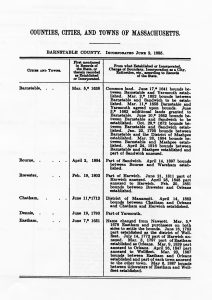 There are any number of reference books with information about when and how the towns of Massachusetts were incorporated. One is Historical Data Relating to Counties, Cities, and Towns in Massachusetts, by Paul Guzzi, Secretary of the Commonwealth, published in 1975. My copy is well worn and loved, but at the moment it is hiding from me (I know that all the books come out at night and move themselves around). Since I am trying to compose an article about the settlement of Cape Cod and really need the resource, I turned to the Internet to find an online copy. The 1975 book is not available as an ebook, but the earlier edition, published in 1920, is available for download.[1] Continue reading Massachusetts towns
There are any number of reference books with information about when and how the towns of Massachusetts were incorporated. One is Historical Data Relating to Counties, Cities, and Towns in Massachusetts, by Paul Guzzi, Secretary of the Commonwealth, published in 1975. My copy is well worn and loved, but at the moment it is hiding from me (I know that all the books come out at night and move themselves around). Since I am trying to compose an article about the settlement of Cape Cod and really need the resource, I turned to the Internet to find an online copy. The 1975 book is not available as an ebook, but the earlier edition, published in 1920, is available for download.[1] Continue reading Massachusetts towns
Category Archives: Genealogical Writing
Loving Register style
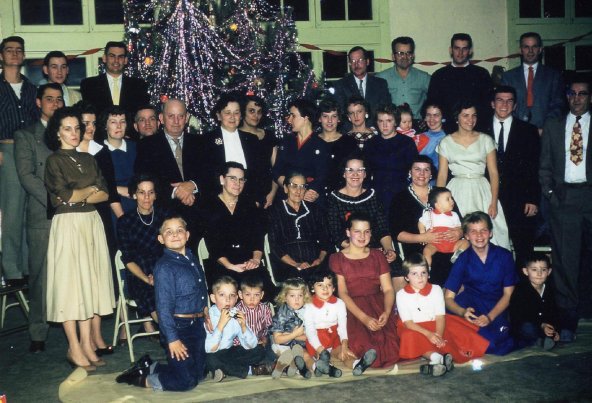
I simply love Register style as a way of presenting descendants of a particular ancestor. Chris Child’s recent post made me realize just how much I love it. It is such an elegant and efficient way of presenting genealogical information that I wish I had invented it. Continue reading Loving Register style
An active pursuit
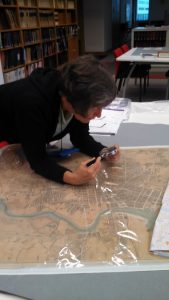 While the variety of televised programs about family history have certainly increased interest in the hobby, I fear that it has begun to supply a skewed approach to genealogical research. So many of these shows show others doing the research for the person, and then making the big reveal, that more often than not we find visitors to the NEHGS Research Center here in Boston expecting us to do the actual research for them.
While the variety of televised programs about family history have certainly increased interest in the hobby, I fear that it has begun to supply a skewed approach to genealogical research. So many of these shows show others doing the research for the person, and then making the big reveal, that more often than not we find visitors to the NEHGS Research Center here in Boston expecting us to do the actual research for them.
Don’t get me wrong – I love to assist family historians with their research. We all need a little guidance from time to time as we struggle with a particular line on the family tree. And I understand that for many people this is a new hobby and they may not understand what to do. Continue reading An active pursuit
A vote of confidence
 Yesterday afternoon, sometime after 2 p.m., Vita Brevis marked a major milestone in the life of a blog with its one-millionth page view. Since it officially launched on 10 January 2014, with Robert Charles Anderson’s Deep Puritan Roots post, Vita Brevis has published almost 650 installments[1] by 73 bloggers, with categories ranging from American History (there are 258 blog posts in this area) to Genealogical Writing (89) to Technology (30). Continue reading A vote of confidence
Yesterday afternoon, sometime after 2 p.m., Vita Brevis marked a major milestone in the life of a blog with its one-millionth page view. Since it officially launched on 10 January 2014, with Robert Charles Anderson’s Deep Puritan Roots post, Vita Brevis has published almost 650 installments[1] by 73 bloggers, with categories ranging from American History (there are 258 blog posts in this area) to Genealogical Writing (89) to Technology (30). Continue reading A vote of confidence
‘The lofty heights’
[Author’s note: This series of excerpts from Regina Shober Gray’s diary began here.]

Hof Ragaz, Ragaz, Friday, 5 July 1878: We reached this place,[2] Wednesday p.m., July 3d, having left beautiful “Serbelloni” on Monday at 10 a. m. We had a lovely 2 hour sail to Colico where we took our last look at enchanting Lake Como – and where our commodious Berlino & four horses and round, rosy, jolly young coachman awaited us, and gave us a hot drive of 3 hours to Ghiavenna,[3] where we passed an anxious night at the “Conradi,” a very good hotel. The drive & jolting put the Dr to a good deal of pain & I feared he would not be able to proceed next day; but he did go on. Continue reading ‘The lofty heights’
Birth order vs. will order
 In the Early New England Families Study Project sketch for Joseph Andrews of Hingham, I included a commentary about the problem I was having establishing the birth order for Joseph’s children. Recently, an inquirer wondered why I had not used the order the children are named in Joseph’s will.[1]
In the Early New England Families Study Project sketch for Joseph Andrews of Hingham, I included a commentary about the problem I was having establishing the birth order for Joseph’s children. Recently, an inquirer wondered why I had not used the order the children are named in Joseph’s will.[1]
Heirs can be listed in a will in any way the testator wants, but there are legal precedents that encourage listing children by birth order. Sometimes all the sons are named first, then all the daughters, and sometimes they are intermixed. Sometimes the testator specifies “eldest son, second son,” but others do not, and while we might assume birth order, it is not guaranteed. Continue reading Birth order vs. will order
A New England Hogwarts
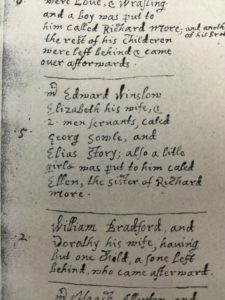
In 2014, I wrote a blog post about the greatness that is J.K. Rowling. My main point was that, as in your own genealogical research, a properly told story – whether fiction or non-fiction – demands a complex, well-researched treatment. Where and when were your characters born? Who were they named after? What nationality/ethnic group do your characters identify with? What is their religion or family tradition?
For most, the influence of family (both real and imagined) will play a significant role in the narrative of your story. Therefore, if you wish to tell your story in the most accurate way, it is important to research and document those who have come before you. This will help to place them into the larger narrative of their family history. Continue reading A New England Hogwarts
The secret history
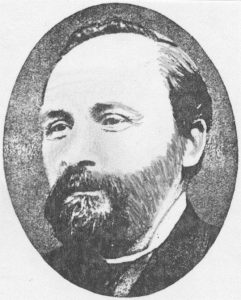
If you have been binge watching the latest season of Orange is the New Black, you may have learned an interesting bit of trivia, courtesy of the Martha Stewart/Paula Deen-inspired new character of Judy King, who mentions that Wonder Woman creator William Moulton Marston (1893–1947) had “two wives” simultaneously.
As explored in Jill Lepore’s The Secret History of Wonder Woman, Marston married Elizabeth Holloway in 1915 and had two surviving children with her; Marston also lived in an extended relationship with Olive Byrne, by whom he had two more children, who were then adopted by William and Elizabeth Marston. Continue reading The secret history
A beautiful view
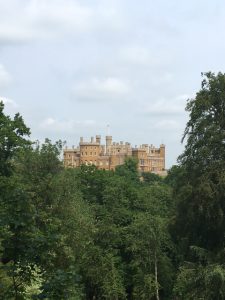
My Simons ancestors came from a picturesque region in England known as the Vale of Belvoir (pronounced “Beever,” and meaning “beautiful view,” from the French), found at the intersection of three counties: Leicestershire, Nottinghamshire, and Lincolnshire. I recently had the pleasure of visiting the Vale with my uncle, Herbert Simons, to become acquainted with the towns and villages where our paternal ancestors lived from time immemorial. Records of the Simons family (variously spelled Simon, Simond, Symonds, Simons, etc.) stretch back in the Manor of Langar as far as 1340, when it was noted that William Simond “has one messuage and one bovate for homage and fealty and pays five shillings at Saint Martin’s and Pentecost …” Continue reading A beautiful view
A voice from the Revolutionary War
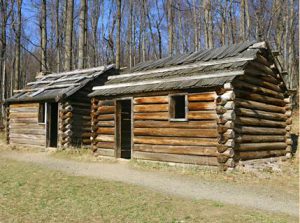
While recently researching an American Revolutionary War soldier who was a lieutenant in the Eastern Battalion of the Morris County, New Jersey militia, I encountered a fascinating historical text from 1975 entitled New Jersey in the American Revolution, 1763–1783, A Documentary History. This text was produced by the New Jersey Historical Commission and edited by Larry R. Gerlach.
There are countless texts and online resources available which accurately state the causes and consequences of the Revolutionary War, but I have encountered few sources which display first-hand accounts of men (and women!) in such a detailed and biographical sense as this text. Continue reading A voice from the Revolutionary War